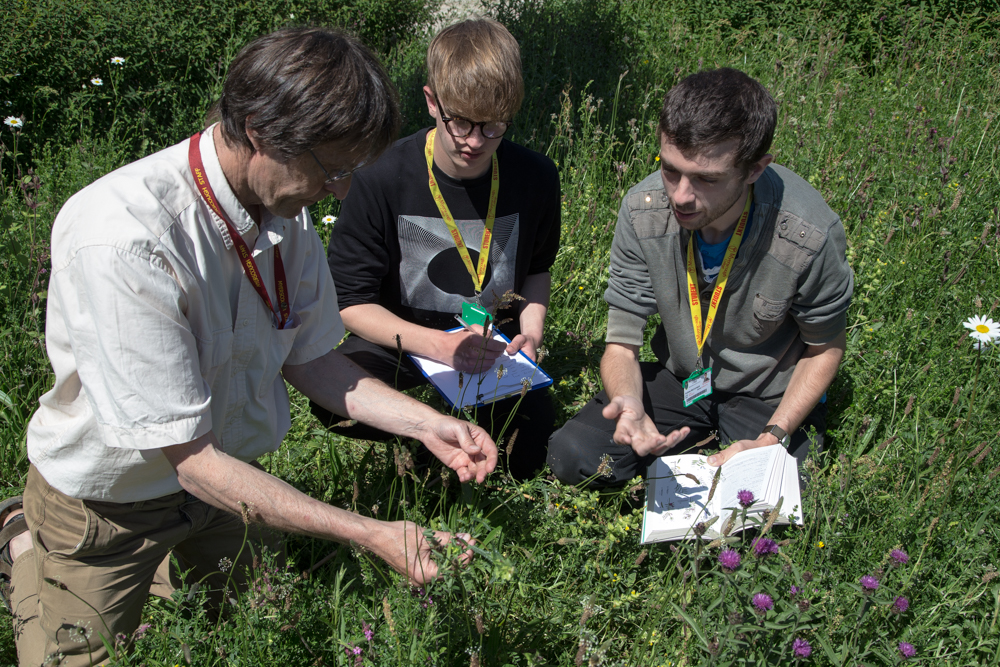Course modules
Year 1
Ecology
This is taught at UCLan and investigates climate change and some of the possible impacts on biodiversity. In addition, you will be introduced to the ecological principles of competition, predation, population dynamics and landscape ecology.
Academic and Vocational Skills
A module designed to enable students to maximise their performance both on the course and in the industry to kick start a strong degree and excellent career in the sector. Students will gain first-hand experience using a relevant industry environment to develop academic, practical and technical skills. Students will record and reflect on their own personal development during the module.
Essential Plant and Soil Science
This module aims to provide students with an essential knowledge of plant biology and physiology. In addition, the nature and role of soil properties in supporting plant growth and the importance of sustainable soil management will be examined. The module will also develop skills in analysis and presentation of data, report writing and give students experience of using a range of laboratory equipment.
Principles of Animal and Crop Husbandry
The main land use in the UK countryside is agriculture and it is essential that ecology students have some understanding of how this industry operates. Students will discuss and evaluate livestock and crop production and how they complement each other. Breeding; variety/breed choice; good health indicators; key pests, diseases and weeds; and nutrition will be evaluated with regard to arable, livestock and integrated farm management and how they impact on countryside management.
Plant and Animal Identification
Identification techniques are key to being an effective ecologist / countryside manager. The module aims to equip students with the skills needed to identify plants and animals found in the UK and give students an understanding of the purpose and scope of plant and animal taxonomy. In addition, students will study some of the methods used to survey for them and interpret the results.
Introduction to Semi-natural Habitats and GIS
Entry requirements & additional information
- Entry requirements
- Learning and assessment
- Progression
- Careers
- Professional accreditations
- Special requirements
Entry requirements
5 GCSE passes at Grade C (4) or above (including Maths and English or equivalent)
Plus 48 UCAS Tariff points from one or more of the following:
- 2 A-levels (A2), at least one at C or above
- BTEC/C&G Level 3
- 2 Scottish Highers at C or above
- 3 Irish Highers at C or above
- International Baccalaureate at 24 points
- NVQ Level 3 in a relevant discipline
- Access to HE Diploma in a relevant discipline
AS levels, BTEC Subsidiary Diploma and Scottish Intermediate 2s may be used to contribute to entry requirements but they are not sufficient for entry on their own. Alternative equivalent qualifications will also be considered positively.
Applicants who believe they may be eligible for Accreditation of Prior Certificated and/or Experiential Learning (APCL/APEL) for certain modules will be considered on an individual basis.
Applicants for whom English is a second language must be able to demonstrate proof of International English Language Testing System (IELTS) at level 6.0 (with no component score lower than 5.5) or equivalent.
All offers may be subject to successful interview
Learning and assessment
Learning Environment:
Learning activities on the course are diverse, including lectures, laboratory practicals, tutorials, site visits and workshops. This course makes the most of the diverse range of habitats and farmland found in the NW of England and our contact with various environmental organisations. Students will be expected to undertake extensive independent study and research to support lectures, site visits and assessments. Group work and group presentations will form an important part of the course. In addition, students will have access to Myerscough’s virtual learning environment.
Assessment:
Students will face a variety of assessments including survey reports, management plans, essays, exams, group and individual presentations, individual study projects and case studies based on work experience.
Additional Information:
The course may include a series of site visits to a range of habitats throughout the NW. This will be an opportunity to see and identify a wide range of plants and animals found in this part of the world.
What Work Experience can I get?
There is no formal work placement on this course. The Academic and Vocational Skills Development and Industry Project modules may utilise both on and off site working environments to provide opportunities for students to develop practical and technical skills and help prepare them for employment in their chose subject area.
Progression
Successful students will be able to apply to progress onto the final year of the FdSc Ecology and Conservation Management run here at Myerscough College.
Careers
Examples include countryside ranger, ecological surveyor and education officer. Many job opportunities exist within the conservation and commercial sectors, and potential employers include the Environment Agency, River Trusts, Natural England, Local Authorities, National Trust, Canal and Rivers Trust, Wildlife trusts and private consultancy.
Myerscough College has excellent links with Lancashire County Council, Wyre Borough Countryside Service, Lancashire Wildlife Trust, RSPB, National Trust, Ribble Rivers Trust, Arnside and Silverdale AONB and Local Environmental consultants.
Professional accreditations
Students will be encouraged to form links with local and national environmental organisations such as the National Trust, The Wildlife Trusts, Local Authorities, National Parks and AONBs, River conservation trusts and Ecological Consultants.
Special requirements
Extra Costs:
- Waterproofs boots - £80
- Binoculars – £150
- Field trips and visits - £200


